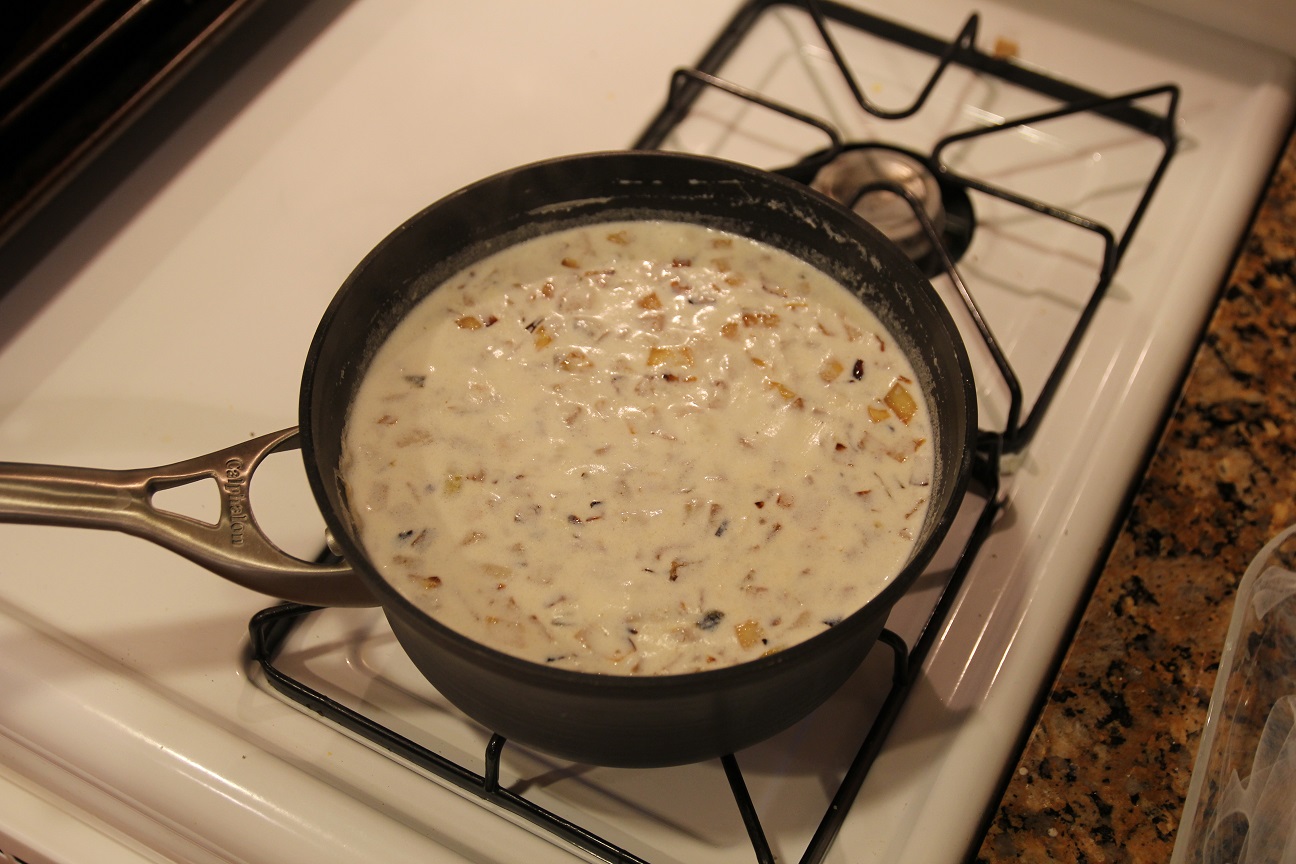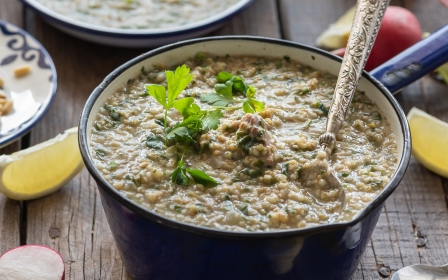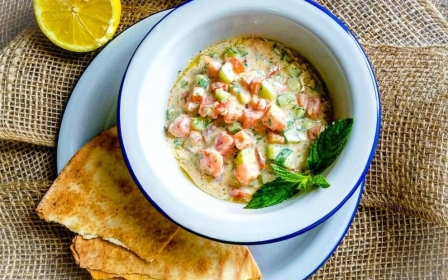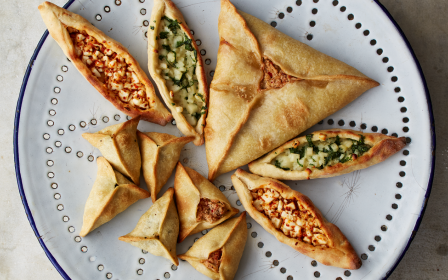How to make this creamy Yemeni soup
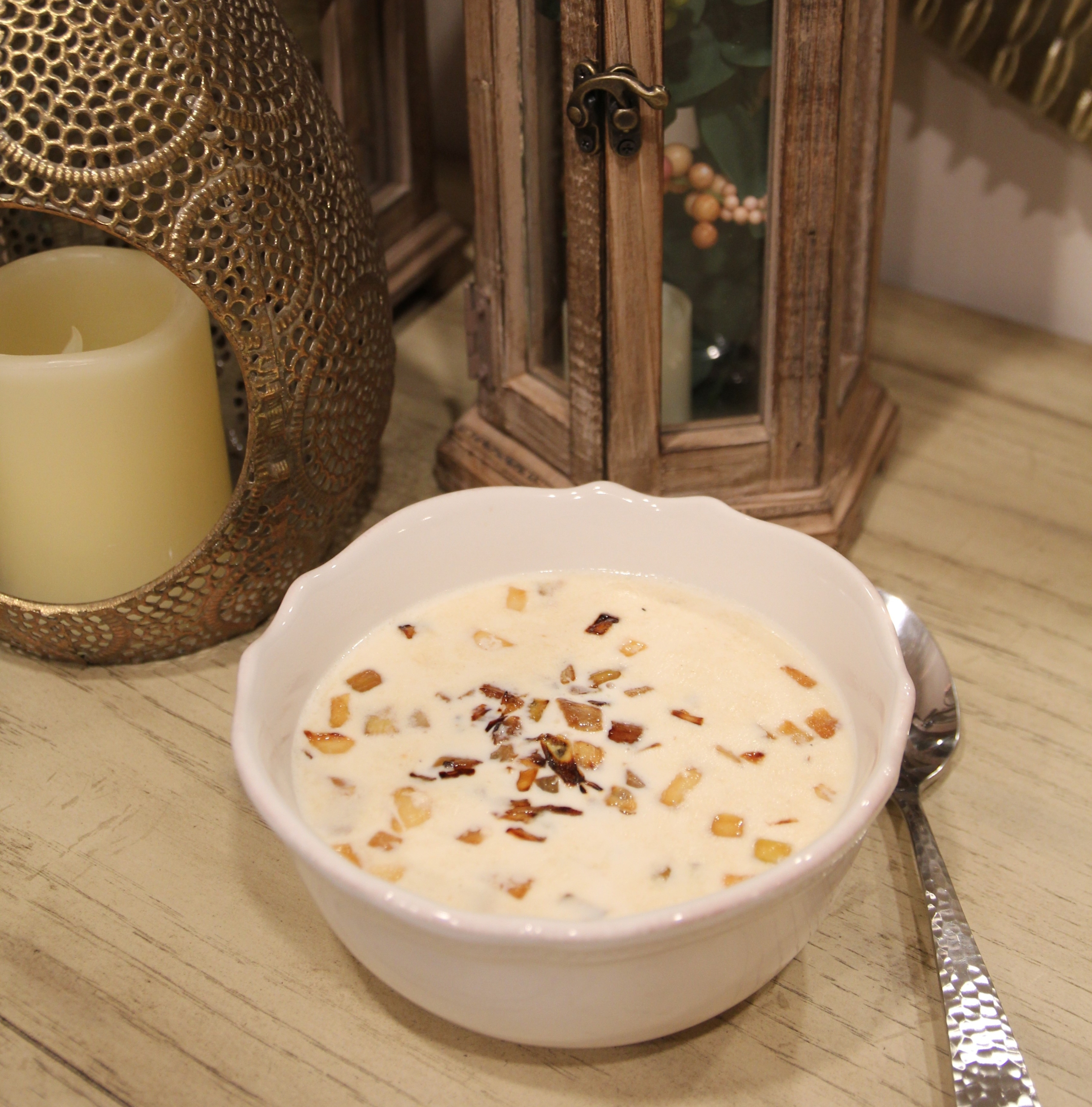
When I think of Ramadan I think of Yemeni soup, which has a creaminess and comfort that will have you addicted.
Each Yemeni family makes their Ramadan soup slightly differently but this is my method, based on what my mum used to cook for the family.
Other traditional versions can include different varieties of barley or grains, a pinch of ground cardamom and sweet onions.
During Ramadan, many Muslims, especially in Yemen, will have it during the iftar fast-breaking meal either - but is also perfect at the start of the day.
New MEE newsletter: Jerusalem Dispatch
Sign up to get the latest insights and analysis on Israel-Palestine, alongside Turkey Unpacked and other MEE newsletters
Recipe
Serves: 6
Preparation and cooking time: 1 hour and 10 minutes
1. Ingredients
- 1 diced large yellow onion
- 190g (1 cup) cooked freekeh
- 150g (1 cup) cooked barley
- 950ml (4 cups) whole milk
- 2 tbsps olive oil
- 80g (1/3 cup) heavy cream
- 25g (½ cup) uncooked oatmeal
- a pinch of nutmeg
- salt and pepper
2. Method
- Boil the freekeh and barley separately. Strain and measure out 190g (1cup) of freekeh and 150g (1 cup) of barley. Use any leftover grains for other dishes throughout the week.
- Fry the diced onions in olive oil until they are golden brown and caramelised, then set aside.
- Transfer the cooked freekeh and barley into the soup pot. Add milk and stir regularly on a medium heat until the milk begins to slightly steam.
- Now add the oatmeal and continue to mix regularly until the soup thickens and the oatmeal is fully cooked.
- Stir in the cream and caramelised onions. Allow the soup to continue cooking on a medium heat.
- Season with a pinch of nutmeg and salt and pepper to taste. Note: go light on the pepper - build up the flavour based on your preference.
- Make sure you are using a rubber spatula to mix the bottom of the pot so the milk does not stick and burn.
- Remove the soup from the heat when the sides start to gently boil.
- Serve.
Amjaad Al-Hussain has never been to Yemen, but it’s very much a part of her identity. Born in New Jersey and raised in Falls Church, the Yemeni-American grew up immersed in Yemeni culture and traditions - including, of course, eating Yemeni food. She has documented her family recipes in a new self-published cookbook called Sifratna, meaning “our dining table.” You can follow her on her Instagram @sifrasafar.
This article is available in French on Middle East Eye French edition.
Middle East Eye delivers independent and unrivalled coverage and analysis of the Middle East, North Africa and beyond. To learn more about republishing this content and the associated fees, please fill out this form. More about MEE can be found here.


